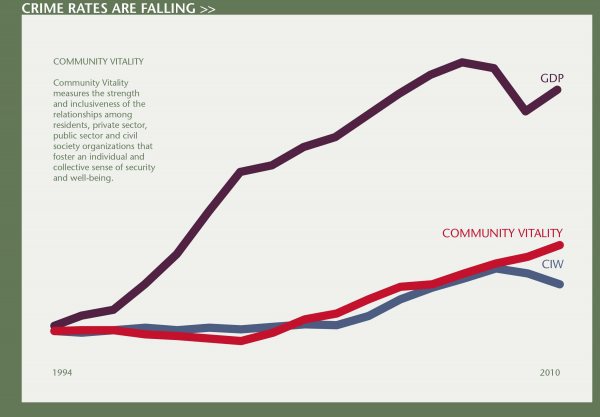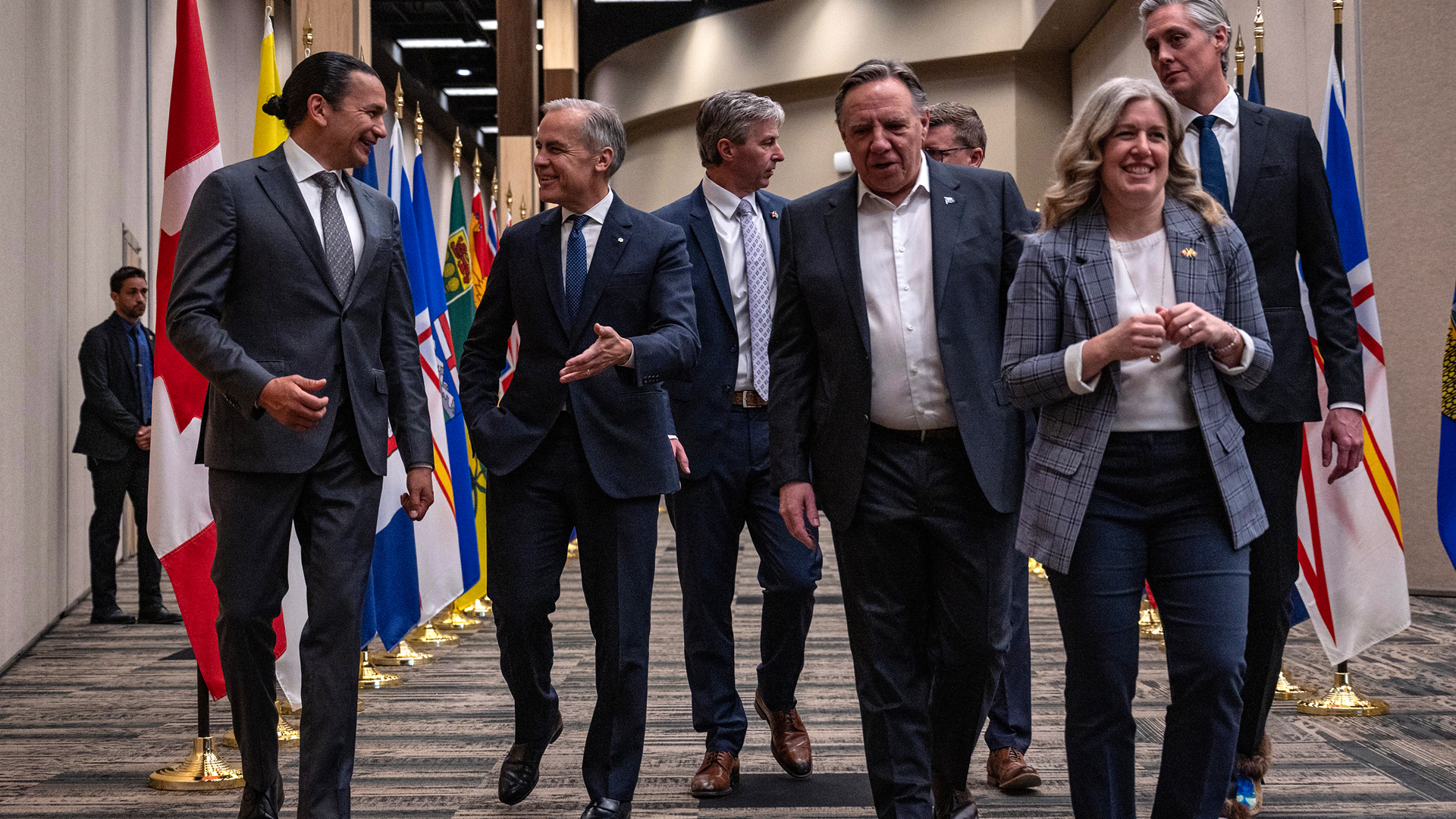
Canada has witnessed meagre economic growth for the last half decade, as has much of the developed world. Many economists project this slow rate of growth could continue for some time, driven largely by stagnation in Europe and the United States. Weak economic growth presents major challenges both to governments and individuals, but it can also be viewed as an opportunity for Canada. Periods of recession or slow growth are a time for transition in the private sector and the government. Canadians could re-focus their energies to develop new, world-class goods and services industries that have the potential to help the country emerge from this period as a leader.
Global economic crises should remind us that Canada’s small, open economy is fundamentally linked to global markets, and that diversification is an ideal buffer against the risks that come with it. Heedless of this reminder, the Conservative government is putting Canada in a risky position by following a single-minded focus on the oil and gas sector. Because of this focus, our future well-being is highly dependent upon an assumption of strong international demand for these commodities.
This is particularly worrying in the context of slowing domestic and international growth, which are exactly the conditions that lead to a decline in the price of global commodities.
According to the International Energy Agency, renewable energy is now the fastest-growing energy sector. Globally, the clean technology market was $1 trillion last year and it is projected to reach $3 trillion by 2020. Canada’s present share of this market is less than 1 percent. While countries like Germany have taken steps to build this sector, Canada has been slow to recognize the potential of our wind energy and biomass reserves.
Canada could encourage innovation and drive growth by providing financial incentives for solar, wind, water, biomass and other renewable sources for electricity. Even in tough economic times, global investment in renewable energy has continued to climb, with analysts projecting it will double by 2020.
There are other opportunities to stimulate growth. Although Canada is above average in science and engineering education, access to venture capital and business research and development expenditure is inadequate. Bank of Canada Governor Mark Carney highlighted that Canadian businesses are sitting on $500 billion in “dead money” due to a lack of investment opportunities. Leadership from the federal government, in the form of actions such as introducing a scientific research and experimental development tax credit, would encourage businesses to invest.

Canada’s skilled labour shortage is well documented. There are regions across this country where unemployment levels remain high, despite the availability of jobs. Business leaders, and even the Conservatives, have acknowledged that there is a gap between employment opportunities and the skill levels necessary to fill those positions. Investing in Canadians to bring skill levels in line with the opportunities would not only be an engine in itself, it would be solid preparation for tomorrow’s economy.
Canada’s mining industry contributed over $102 billion (about 20 percent) to Canada’s gross domestic product in 2011. A recent Canadian Chamber of Commerce report warns, however, that the Conservative government’s neglect of skills development may compromise the long-term viability of this sector. The Conservatives have acknowledged Canada’s skills gap, but investment in human capital is necessary to fully reap the benefits of mining. Local industries stagnate in parts of Canada where there is a significant skilled labour shortage.
The NDP has called for a comprehensive mining strategy that includes skills development to meet the needs of a growing mining sector. This plan would benefit all communities, including First Nations, and should incorporate labour market monitoring to guide training.
Even novice investors know that economic diversification is a cushion against market turbulence. The expected economic slowdown must become an opportunity for Canada to develop areas of our economy that have been neglected, creating much-needed balance to withstand the disruption of a slower growth world.








